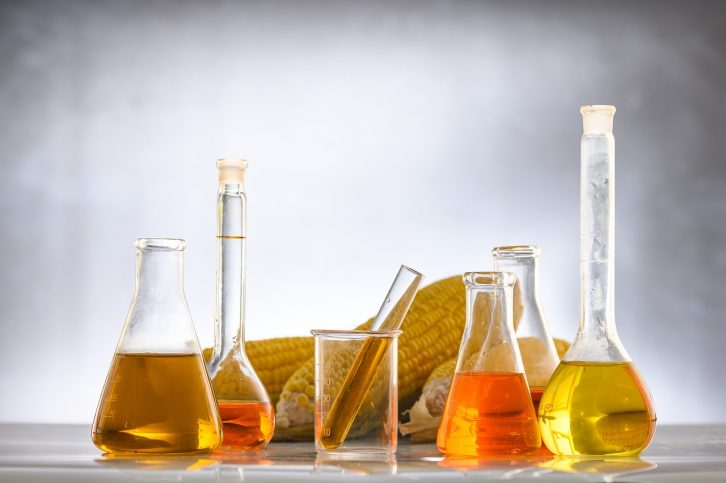Table of Contents
- Introduction to Deacidification in Oil Refining
- What is Deacidification?
- The Deacidification Process
- Neutralization
- Separation
- Final Refinement
- Benefits of Deacidified Oils
- Improved Taste and Smell
- Extended Shelf Life
- Higher Quality Standards
- Why Deacidification is Essential for the Food Industry
- The Role of Technoilogy in Advanced Deacidification Processes
- Expertise in Oil Refining Technology
- Commitment to Quality and Efficiency
- Conclusion
Introduction to Deacidification in Oil Refining
The refining of edible oils is a critical process in ensuring quality, stability, and safety. One of the most important steps in oil refining is deacidification, which removes free fatty acids (FFAs) that can cause bitterness, off-flavors, and oxidation.
By improving the sensory characteristics and shelf life of oils, deacidification ensures that they meet food safety and industry regulations. This step is essential for oils used in cooking, food production, and industrial applications.
What is Deacidification?
Deacidification in oil refining is the process of neutralizing or removing free fatty acids from crude oils. These free fatty acids can cause:
- Unpleasant taste and odor
- Reduced stability leading to rancidity
- Lower quality and safety concerns
To enhance oil purity and usability, deacidification uses steam or alkali treatments to eliminate excess acidity. This step helps produce refined, high-quality oils suitable for food processing and industrial use.
The Deacidification Process
The deacidification process involves several key stages to ensure the removal of free fatty acids while preserving oil quality and functionality.
1. Neutralization
- Oils are treated with steam distillation or alkali neutralization.
- Steam distillation removes volatile acids without affecting oil composition.
- Alkali neutralization (chemical refining) involves adding alkaline solutions to convert free fatty acids into soapstock, which is later separated from the oil.
2. Separation
- After neutralization, free fatty acids are physically separated from the oil.
- This step ensures that the refined oil remains smooth, stable, and safe for consumption.
3. Final Refinement
- The oil undergoes further purification to remove traces of impurities.
- This ensures that the final product meets food safety standards and maintains optimal taste, clarity, and stability.
Benefits of Deacidified Oils
Deacidification plays a crucial role in enhancing the properties of edible oils, making them suitable for a wide range of applications.
1. Improved Taste and Smell
- Removes bitterness and unwanted flavors.
- Eliminates odor-causing compounds, resulting in a neutral, high-quality oil.
2. Extended Shelf Life
- Reduces oxidation and rancidity, ensuring longer storage stability.
- Prevents spoilage caused by free fatty acid degradation.
3. Higher Quality Standards
- Meets food industry regulations and international safety requirements.
- Ensures oils remain pure and suitable for various culinary and industrial applications.
Why Deacidification is Essential for the Food Industry
The food industry relies on high-quality edible oils for cooking, food preparation, and processed products. Deacidification ensures that oils are:
- Safe for consumption by eliminating harmful impurities.
- More stable for long-term storage and commercial distribution.
- Suitable for diverse applications, including frying, baking, and packaged food production.
This process is particularly important for large-scale manufacturers that require consistent oil quality in their production lines.
The Role of Technoilogy in Advanced Deacidification Processes
Expertise in Oil Refining Technology
Technoilogy specializes in advanced oil refining solutions, providing efficient and high-performance deacidification systems for various industries.
Commitment to Quality and Efficiency
With a strong focus on precision and sustainability, Technoilogy ensures that:
- Deacidification processes meet global food safety standards.
- Oil refining methods are optimized for maximum purity and yield.
- Energy-efficient solutions are implemented to reduce operational costs and environmental impact.
By integrating cutting-edge refining technology, Technoilogy supports food and industrial sectors in maintaining the highest oil quality standards.
Conclusion
Deacidification is a crucial step in oil refining, ensuring that oils are safe, stable, and high-quality. Through neutralization, separation, and final refinement, this process removes free fatty acids, preventing rancidity and improving taste, odor, and shelf life.
With advancements in oil processing technology, companies can achieve greater efficiency and sustainability in refining edible oils. Technoilogy continues to lead in innovative deacidification solutions, providing industries with reliable, high-performance refining technologies.

